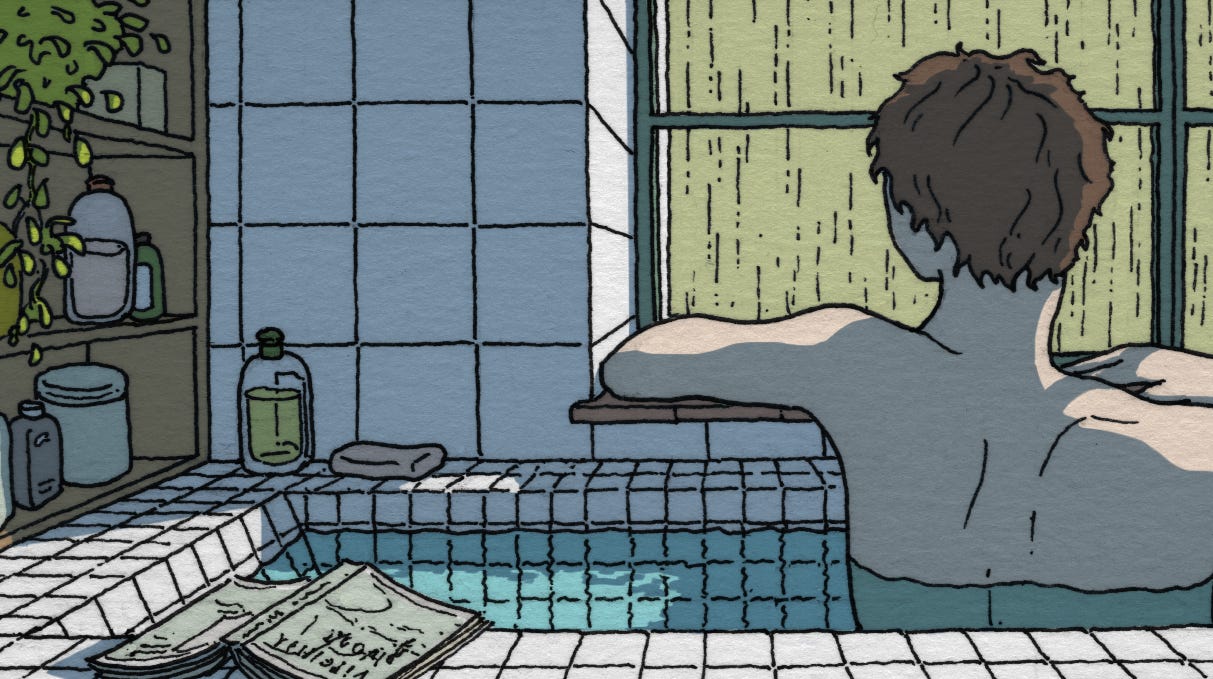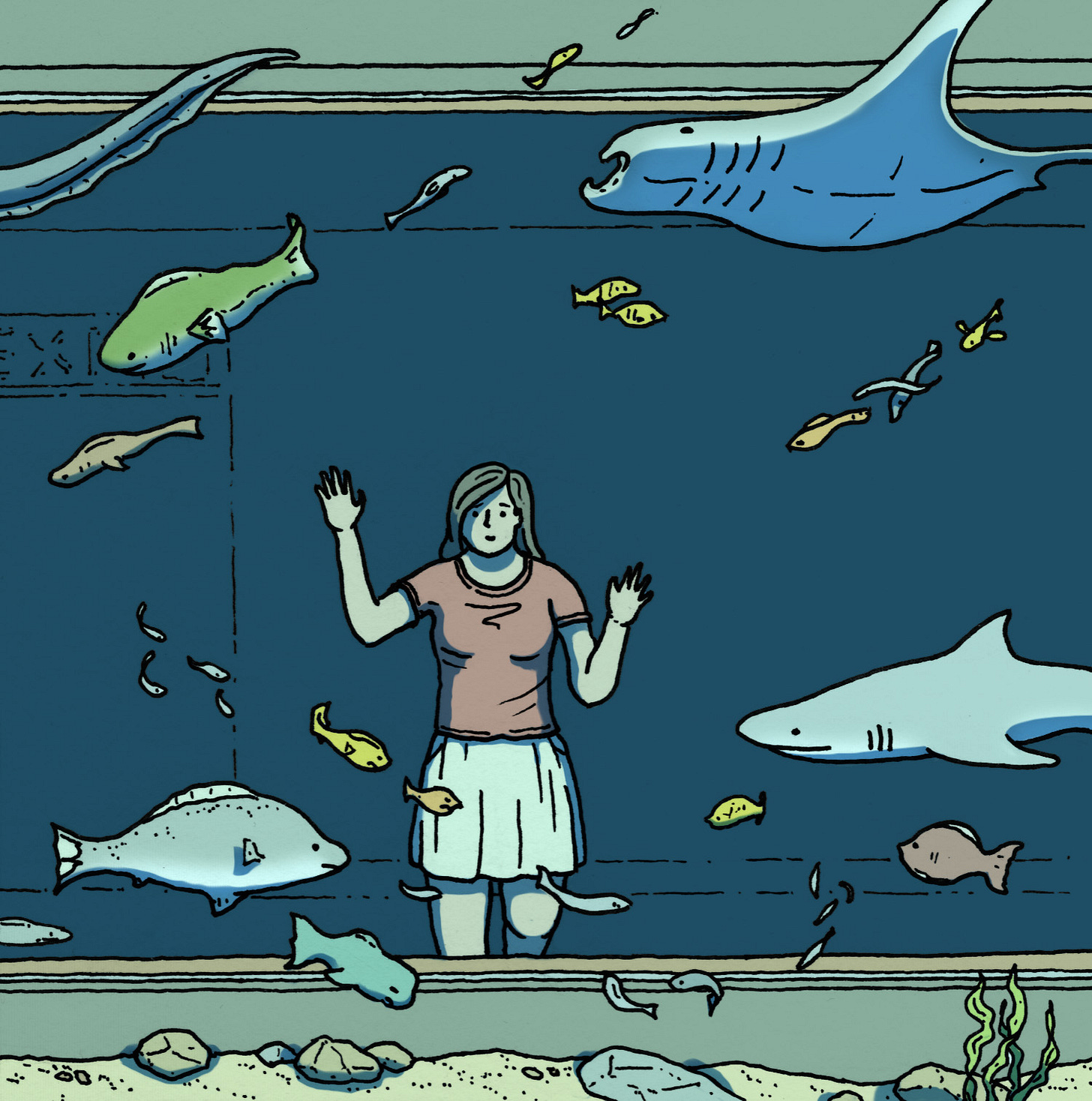Hello!
Hope you’re enjoying a seasonal break of some sort, and if it’s not fully relaxing, then perhaps I can help with a quiet moment and a few suggestions of books I have enjoyed this year. This is something of a tradition (well, this is the third year), but I see that there are a lot more of you now, so welcome if you’re new here, and let’s just recap what’s going on.
As ever, these books are not all from 2024, just my favourite books that I read over the year. I read nonfiction in the mornings and fiction at night, as a way of balancing out what I consume.
Reading felt like a bit of struggle this year for some reason, I think I got stuck on a few slow movers. But I read about thirty books all in, and these are the ones I’m sharing with you. They’re in no particular order and I’m not promoting any of them particularly, just something you might want to spend your book tokens on if any sound like something you’d enjoy.
Right, let’s get into it.
Top 5 Fiction.
West - Carys Davis
Almost parabolic in nature, West is a reminder that there are two sides to every story of obsession; all that you are going after, and all that you leave behind. Considering it’s huge western scope, it’s incredibly economic writing, while never feeling stark or unrealised. It gently insists that we look at a story that doesn’t arc in the way we might hope, or have been taught to expect. A concave, perhaps. But no less satisfying as a a result.
Pereira Maintains - Antonio Tabucchi
Quiet defiance is the less glamorous of revolutionary approaches. Doing what you can in the face of fascism, while trying to protect your relatively secure life, is the reserve of those who have something to lose. But Pereira is nudged by increment to the realisation that the only important thing might be to act in the way he has some control over, however small. It’s also nice to spend time with such a thoughtful character, following the middle-aged widower as he wanders through the sun soaked streets of Lisbon stopping into his favourite cafes for information, and ordering his signature glass of lemonade and ‘omelette aux fine herbs’.
Mr Norris Changes Trains - Christopher Isherwood
A Single Man is one of my favourite books of all time, so it was interesting to read the work of a much younger Isherwood. I was happy to find it still has his compassion and observation that lead to such beautifully realised characters, particularly the titular Mr Norris. It’s deceptively light in tone at first, as we view the world through the sympathetic and optimistic eyes of the narrator, but as it develops, and the truth of what is brewing in 1930’s Berlin begins to surface, Isherwood reminds us that it’s all fun and games, until it’s not. Much like Pereira Maintains, you can obfuscate or look away, but there’s always a line, and you know what you have to do.
A Season in Sinji - J.L Carr
As a fan of A Month in the Country I was keen to read another J.L Carr novel, but I was trepidatious as I’d never heard of this one prior to finding a copy in a second-hand bookstore. Still, it had me at ‘wartime west Africa’ and I ignored the fact it seems to be described everywhere as a ‘cricket novel’. Based on Carr’s own wartime experiences, the narrative is very Catch-22 in approach, by viewing the madness from the bottom up. War and cricket aside, it’s really a book about class and all that comes with it, seemingly banal and petty at first, but building to a devastating climax. If you need any more convincing, Carr considered it his best work.
The Dig - Cyan Jones
Head and shoulders my favourite fiction of the year. The dark and cruel beauty of a rural life laid bare. The writing is so stark that sentences are frequently left poetically abstract, but instead of alienating, it draws you in and makes you almost complicit via your interpretation. Did you actually think that, or was it on the page? Almost painful to read at times, as you get the impression that Jones is not afraid to go to some truly horrific places, while never feeling exploitive of gratuitous. It wasn’t the light holiday reading I was looking for, but its memory will last far longer than the trip I imagine.
Top 5 Nonfiction.
A Flat Place - Noreen Masud
I didn’t expect this to end up the list, even when I was half way through it. But it’s here as it gave insight to an experience alien to me, although probably far too common. It’s an account of trauma, but delivered through the lens of experiencing things spatially. There’s also the shadow of history and colonialism stretching across it. Not a barrel of laughs, but that’s not why you came here, is it?
Question 7 - Richard Flanagan
It’s a bit of cliché to say that something defies classification, but Question 7 is sort of about everything. Essentially though, Flanagan attempts to prescribe some kind of meaning to the horrors his father endured during WW2, and by extension, why humanity does the things it does to one another. Part memoir, part history, it is so much more than the sum of it’s parts, a true meditation on who we are and how we got here. Devastating and beautiful by equal turn, in the manner of Vonnegut or Heller.
Q & A - Adrian Tomine
I talked about this in my last newsletter, and as I discussed there, it’s rather tailor made to my particular life and interests. The comics writer and illustrator talks through the most frequently asked questions about his career. I think you would have to at least be aware of and like Tomine’s work to get something out of it, or be an illustrator, but it’s my list, so it’s going on. I found it both reassuring and inspiring.
The Unwomanly Face of War - Svetlana Alexievich
This was a hard read in the mornings, as these accounts of Russian women during WW2 (collected through interviews by Alexievich), are incredibly raw. Unapologetic and open, they are a record and viewpoint often eclipsed by classic narratives of heroism or more banal factual accounts. It was frequently gut-punchingly dark, but absolutely brimming with humanity too. And a monumental reminder that, as war photographer Don McCullin so rightly observed about all conflicts, women and children are the ones that pick up the cheque. Every time.
The Ship Asunder - Tom Nancollas
I think the concept of this book is better than the execution. I don’t mean that to sound as harsh as it does, but more praise of it’s core idea, that buildings, names, phrases, attitudes we use all the time are frequently remnants of Britain’s nautical past. The missing bit in the story being the ships themselves that have long since rotted away or sunk to the bottom of the sea. So, we are existing in history as expressed through negative space, the relief formed in their absence. Nancollas walks us through those missing artefacts and why we have what’s left.
There we go, 2024 is all wrapped up, but I’m not going to dive headlong into an existential crisis about it, so I’ll let you get back to whatever you’re up to and we’ll catch up in the new year.
The KIOSK has erratic opening hours, as you know, but I’m usually here pottering about, so thanks for dropping by in this busy time. I don’t know why my last newsletter became so popular, but it’s really nice to see some new faces too, and in the meantime, you can cast your eyes over all the previous issues on the shelf.
See you soon.
Owen D. Pomery.









Hah. For once I’ve read some books of those ‘top reads’ lists (Mr Norris Changes Train, and West), because I feel I always read so randomly and never follow the new releases.) My husband set himself a challenge to read 12 books in 2024 (which was very modest, but we have a small child and we’ve had quite a year). two days ago he realised he is 1 book short so I gave him Hard Switch. After he finished it (he loved it) he realised he counted wrong and he is STILL one book short, so he went and bought himself British Ice. (He also read Victory Point before). He is a fan now. Happy New Year!
Yo, I am here for like first time (not counting your newsletter with graphic in the kitchen) and after reading that one... I've written down "Q & A - Adrian Tomine", because it seems it might be something creative I might use in the upcoming year.